
Being Me: Jack
At 18, Jack Brown made a decision that would put him in a wheelchair for life. Facing his new reality, he had two options: look backward or move forward. Four years on he’s still learning, but there’s hope.


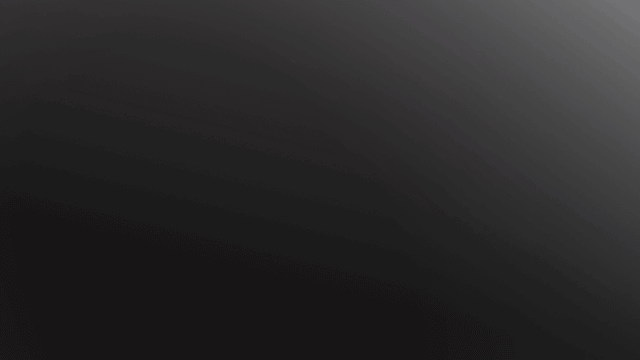
Being Me: Sarah Morrell
Sarah Morrell has a rare genetic condition called Morquio IV which means she is just one metre tall....
Being Me: Sarah Morrell



Being Me: Te Huia Apaapa
26-year-old Te Huia Apaapa is a gifted runner and triathlete known as ‘The Rocketman’. Te Huia has a...
Being Me: Te Huia Apaapa



Being Me: Joshua Sade-Inia
Joshua Sade-Inia is a burns survivor who’s scars cover half of his body. To Josh they represent his ...
Being Me: Joshua Sade-Inia



Being Me
The quintessential Attitude episode. Being Me tells the story of remarkable individuals who face the...
Being Me



Being Me: Juanita Willems
Pre-Christmas Juanita Willems is flat out, collecting, wrapping and distributing presents for foste...
Being Me: Juanita Willems



Being Me: Bailee Lobb
Installation artist Bailee Lobb uses her colourful works to explore lived experience of disability, ...
Being Me: Bailee Lobb



Being Me: Steff Green
Author Steff Green writes full-time from her home in the Kaipara Harbour. Legally blind, Steff was o...
Being Me: Steff Green



Being Me: Lusi
Groundbreaking performer Lusi Faiva reconnects with her Samoan heritage as she makes her mark on Wel...
Being Me: Lusi



Being Me: Rachael Leahcar
Australian singer-songwriter, Rachael Leahcar, was born with retinitis pigmentosa and at 25-years-ol...
Being Me: Rachael Leahcar



Being Me: Ian
Ian Stewart is a flamboyant 24-year-old with an eye for fashion, beauty and soap operas. But when dy...
Being Me: Ian



Being Me: Jono
At birth, Jono Nelson was given just 24 hours to live. Now the Timaru-based hand cyclist, who lives ...
Being Me: Jono



Being Me: Dillon Maydon
Dillon's life was altered at just eighteen when he was diagnosed with Friedreich’s Ataxia, a rare ge...
Being Me: Dillon Maydon



Being Me Freedom
Freedom was diagnosed with eye cancer at three months old, having both eyes removed by age five. Now...
Being Me Freedom



Being Me: Susan Williams 8/5/22
Non-binary performance artist Susan Williams adores theatre. Their latest show, Illegally Blind, is ...
Being Me: Susan Williams 8/5/22



Being Me: Hayley
17-year-old double amputee, Haley Birch is breaking records. Having survived meningococcal disease, ...
Being Me: Hayley



Being Me: Eltje
Eltje lived for cycling and competing. While out training, she was struck by a car and suffered a tr...
Being Me: Eltje



Being Me: Devon Briggs
Para-athlete Devon Briggs was born with severe clubfeet, twisted backwards. The 18-year-old has end...
Being Me: Devon Briggs



Being Us: Andrey and Eilish
Best friends Andrey and Eilish are the Yin to each other's Yang and would be lost without one anothe...
Being Us: Andrey and Eilish



Being Me Shakti
Shakti Krishnan is leaving his family to pursue tertiary life in the big smoke, and to prove to his ...
Being Me Shakti



Being Me: Brylee
At six, Brylee Mills lost her arm, and has been coming to terms with it ever since. She's embarking ...
Being Me: Brylee



Being Me: Jared Flitcroft
Jared Flitcroft is a filmmaker, businessman, family man, and he is Deaf. Overcoming barriers to achi...
Being Me: Jared Flitcroft



Being Me: Josh Davies
26-year-old Josh Davies is a stand-up comedian trying to turn making people laugh into a full time l...
Being Me: Josh Davies



Being Me: Ripu
Ripu was 21, living in Sydney and finishing a Masters in Journalism when meningococcal septicaemia n...
Being Me: Ripu



Being Me: Brent Eyskens
Unable to communicate verbally, songwriter Brent Eyskens - who lives with Cerebral Palsy - has found...
Being Me: Brent Eyskens



Being Me: Carlos
Carlos Biggeman is an award-winning photographer, he’s about to publish a book of his work. He was b...
Being Me: Carlos



Being Me: Aidan Terpstra
Aidan’s life changed forever when he was knocked out with a king-hit punch. The injury to his brain ...
Being Me: Aidan Terpstra



Being Me: Sam Smith
Sam Smith is a comedian and a new dad. He doesn't take life too seriously but he's just been diagnos...
Being Me: Sam Smith



Being Me: Cody Steps Up
Tetraplegia hasn’t stopped wheelchair rugby star Cody Everson from stepping up to adulthood. He owns...
Being Me: Cody Steps Up



Being Me Alix
Alix Generous has spoken at the United Nations, made a significant contribution to science, given tw...
Being Me Alix



Being Us: Liam and Shane
Liam has Down Syndrome, and while technically Shane is teaching him life skills, Liam's the one who'...
Being Us: Liam and Shane



Being Me: Heather
As Heather Lawson turns heads while walking the streets of Melbourne with her dressed-up walking can...
Being Me: Heather



Being Me: Danielle Aitchison
Danielle Aitchison was born with Cerebral Palsy. As a child she struggled to walk, but her family en...
Being Me: Danielle Aitchison



Being Me: Kiranjit Singh
Tetraplegic, Kiranjit Singh, is competing to qualify for the 2024 Paralympics in Para-sport shooting...
Being Me: Kiranjit Singh



Being Me: Veronique Theberge
Five years on from an acquired brain injury due to encephalitis, Veronique Theberge is training for ...
Being Me: Veronique Theberge



Being Me Rex
Rhys Davies was a successful I.T. engineer before a head injury changed life dramatically. He's not ...
Being Me Rex



Being Me: Petra
When she was six Petra was diagnosed with cancer. She beat it - four times before she was sixteen. N...
Being Me: Petra



Being Me: Geneva
Geneva Tino's cerebral palsy means she needs a TalkLink device to communicate... ironically the 24-y...
Being Me: Geneva



Being Me: Eamon
32-year-old Eamon Wood has travelled all over the world in his wheelchair. Now he’s back home in Chr...
Being Me: Eamon



Being Me: John
Sport has been a huge part of John Marrable’s life since an accident put him in a wheelchair. His ma...
Being Me: John



Being Me: Claire
Claire Freeman's achieved a lot since a spinal injury that put her in a wheelchair at 17, a design d...
Being Me: Claire



Being Me: Gigi
Gigi, a sassy girl with Down Syndrome from a small town America has a big dream - to walk the catwal...
Being Me: Gigi



Being Me: Cory
Punk-rock frontman Cory Newman is creating big waves with his band. The award-winning 17-year-old, w...
Being Me: Cory



Being Me: Cyrus
Resourceful 13-year-old Cyrus, who lives with Cerebral Palsy, wanted an accessible swing in the park...
Being Me: Cyrus



Being Me: Jason
Throughout childhood Jason Edgecombe was different and suffered endless rejection. But a diagnosis o...
Being Me: Jason



Being Me Sam
Sam Humphrey is the height of your average 7-year old. Except that he's not 7 - he's 22. However Sam...
Being Me Sam



Being Me Nick
Nick Chisholm is a body builder whose body is paralysed, a talker who spells words out with his eyes...
Being Me Nick



Being Me: Robbie
Robbie Francis is 27, and doing her bit to change the world. She's bringing together disability, sus...
Being Me: Robbie



Being Us: Nathan and Michael
A friendship born out of a love for sport, Nathan and Michael's fates aligned thanks to their passio...
Being Us: Nathan and Michael



Being Me: Marfan Syndrome
Over 6 feet tall at just 13 years old, Milly manages the rare condition Marfan Syndrome, while griev...
Being Me: Marfan Syndrome



Being Me: William
Diagnosed with autism spectrum disorder and anxiety as a child, 25-year-old William Luskie is now an...
Being Me: William



Being Me: Erica
Born with a rare condition that affects her outward appearance, Erica Perry proves it’s what’s on th...
Being Me: Erica



Being Me: Rachel Māia
Rachel Māia lives in constant pain, considering amputating her leg to reach new heights.
Being Me: Rachel Māia



Being Me: Barney Looks Back
Barney lost his hands and legs from meningitis as a baby. At 25, he looks back on the life lessons ...
Being Me: Barney Looks Back



Being Me: Samarra
Samarra Wright grew up fearing she’d get MND - it killed her mother and many of her wider family. H...
Being Me: Samarra



Being Me: Jack
At 18, Jack Brown made a decision that would put him in a wheelchair for life. Facing his new realit...
Being Me: Jack



Being Me: Sarah
Though born with CHARGE syndrome, 22-year-old Sarah Dalton doesn’t let it define her. She’s an avid ...
Being Me: Sarah



Being Me: Joshua
Joshua Sade-Inia is a burns survivor. The scars, which cover almost half his body represent his ins...
Being Me: Joshua



Being Me: Ming Ming
Blind since birth, Ming Ming has never let that stop him being involved in everything from cricket t...
Being Me: Ming Ming



Being Me: Kasem
13-year-old refugee Kasem lost his leg and much of his upper arm in a bomb attack in Syria, which al...
Being Me: Kasem
Farming in a wheelchair has its challenges, but for Jack Brown, not being able to walk isn’t the biggest barrier he’s had to overcome. Rather, it’s the mental recovery that took him on the longest road to finding himself.
“I didn’t choose to be in a wheelchair,” says the 21-year-old. “But now that I’ve been given a second opportunity... it just means that I have to be in a wheelchair, it’s something that I just have to accept.”
Jack tells an emotional, self-reflective story of the journey that led to life in a wheelchair. Now three years on from an attempt at ending his own life, he knows he could have so easily been a statistic, all too familiar among New Zealand youth.
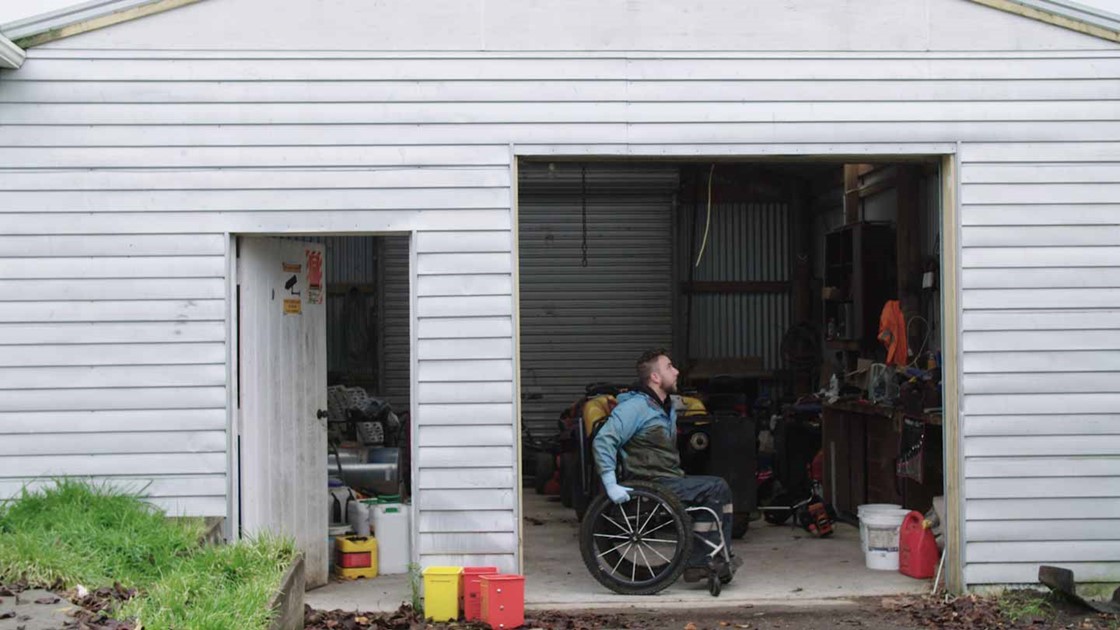
Jack’s younger years were spent growing up in army housing, and at age 10 his parents separated. The ensuing years had their ups and downs for Jack, but instead of talking about how he was feeling and addressing the issues, he chose to bottle things up.
“I saw mental health as a weakness and if I was to talk to someone about it, it wasn’t manly and if I was to accept it, it was a problem.”
He describes his younger self as a rebellious young man; leaving school at 16, he felt it wasn’t the right fit for him. Getting into farm work and pursuing study in this field gave Jack a purpose and drive that he hadn’t experienced previously, but the move north to Taranaki proved tough at such a young age. Making new friends and connecting with other teenagers was difficult to fit in around full-time work.
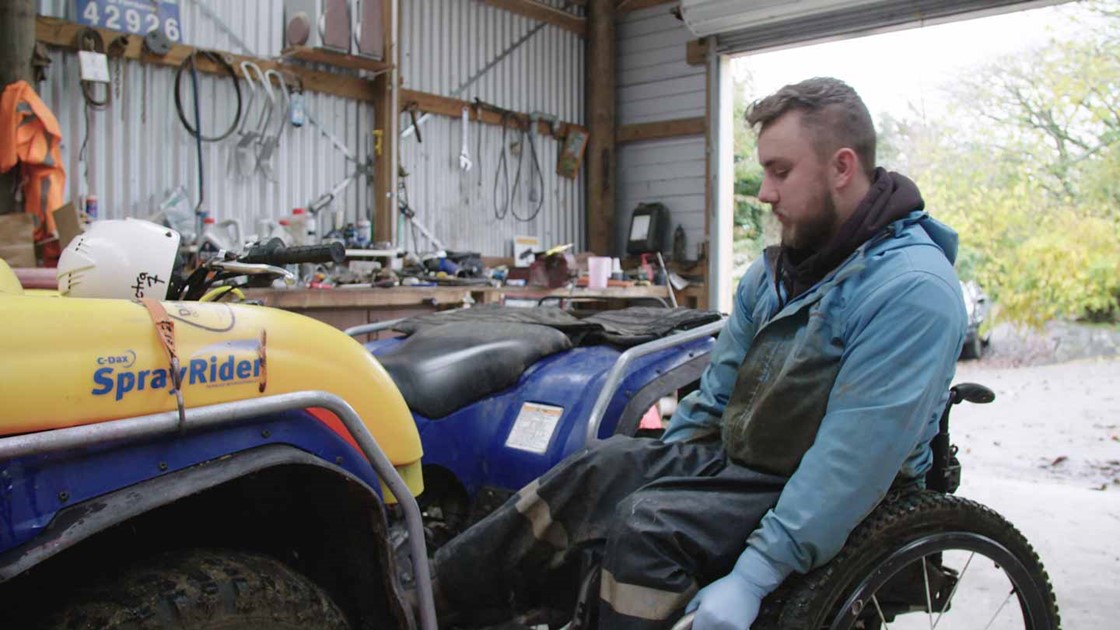
“I got to the point where I was hurting so much,” he continues, “the only way I could find myself, to be happy, was to remove myself from the situation.”
“I went into it with a thousand problems and then to come out of it with 10 thousand problems, it was definitely the hardest time in my life and it pretty much crushed me completely.”
Jack’s attempt severed his spinal cord, and he is now a T11/T12 paraplegic. After spending 12 weeks in hospital and rehabilitation, Jack felt he owed it to his family and friends to keep himself safe. Upon returning to Taranaki, he checked himself into the mental health ward.
Once back on the farm, Jack learned that keeping active and working outside was the best therapy, and helped to keep him from dwelling on things.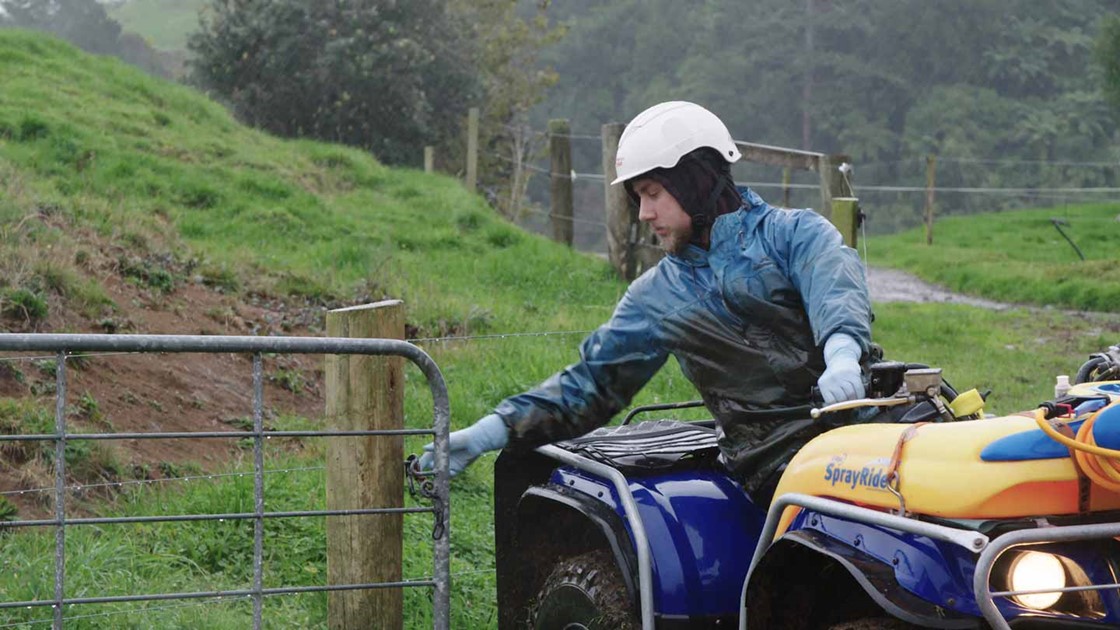
Aside from the effect his decisions have had on his own life, he acknowledges what his family has had to go through as well, “it’s hard to know I’ve hurt them like that, they all mean so much to me and it sucks that I put them in that position.”
Ian (affectionately referred to as Jack’s foster dad) recognises Jack had to rebuild his life; “There’s the mental recovery from having a major disability, as well as the mental recovery from suicide and he had them both at once.”
He also reflects on his role in the situation; “when you go through something like this you always ask yourself questions like what should I have done. But it’s also part of the process to get to a point where you say the only person who made the decision was Jack.”
Jack has decided to move on and no longer blame himself, or worry about what people think of him and his wheelchair.
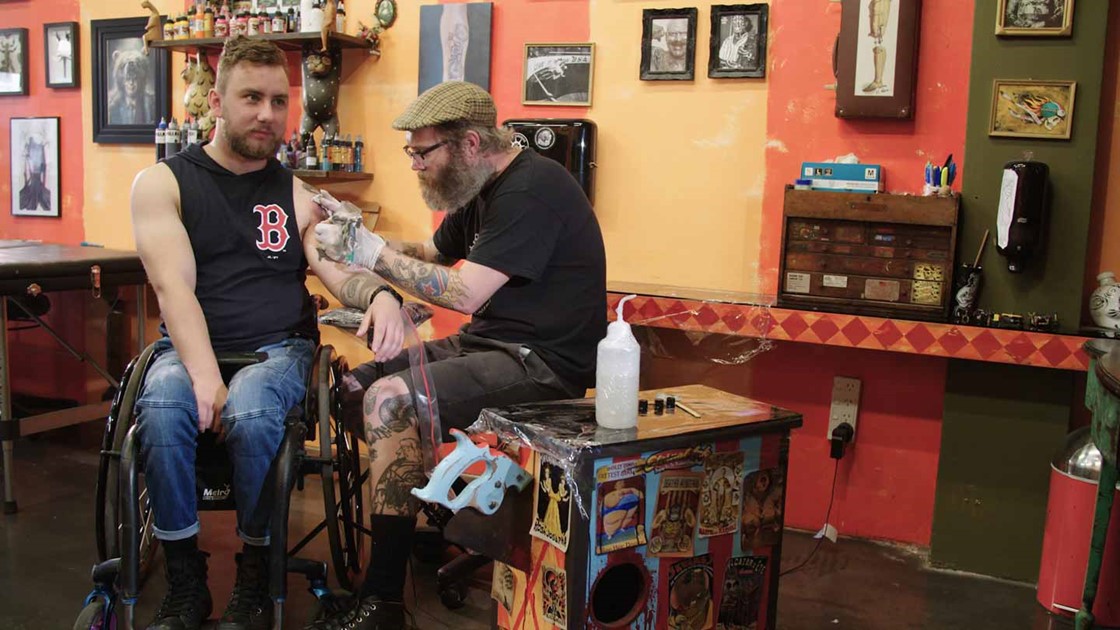
“Now if people want to stare they can and I don’t take that on anymore and I don’t let anyone judge me in a way that will affect me. I understand that I’m different but I don’t think disabled is the right word for it, things just take a bit longer and are a bit harder but if you surround yourself with the right people nothing is a problem.”
Jack’s views about men’s mental health have changed, “now I’ll look at somebody and I think they’re stronger if they are able to accept something or able to ask for help, it’s not a weakness at all.”
Now he can talk more openly about his feelings without feeling weak for doing it and his relationship with his dad also improved. His father Paul supports him every step of the way; “If we can share the story and can make one person stop and think and phone your dad and say dad I need help.”
Jack hopes to pass on what he has learned from his experiences.
“The biggest thing is it’s okay not to be okay and if you ask for help it will be there, it’s not gonna change overnight but if you work towards it you will get there,” and this is what he plans to keep doing, making the most of every opportunity.



Being Me: Barney Looks Back
Barney lost his hands and legs from meningitis as a baby. At 25, he looks back on the life lessons ...
Being Me: Barney Looks Back



The Disease That Is Killing My Family: Part 5
For years we've been told to eat less and move more and that we are in control of what we eat; but p...
The Disease That Is Killing My Family: Part 5



Maia and Letitia
Maia Amai's face was ravaged in a car fire when she was a toddler. She barely left the house until c...
Maia and Letitia



Being Me: Hayley
17-year-old double amputee, Haley Birch is breaking records. Having survived meningococcal disease, ...
Being Me: Hayley



Being Me: Robbie
Robbie Francis is 27, and doing her bit to change the world. She's bringing together disability, sus...
Being Me: Robbie



Maia
Maia Amai bears brutal scars - the result of a car fire when she was just 18mth olds. A subsequent s...
Maia



The Disease That Is Killing My Family: Part 2
Brian Kairau can't feel his feet. Years of Type 2 Diabetes has damaged the small blood vessels leavi...
The Disease That Is Killing My Family: Part 2



Bulletproof: Matthew
Carefree farmer Matt Bryson lost his leg in an accident on the family farm four years ago. He contin...
Bulletproof: Matthew



Barney Makes a Difference
Barney lost his hands and legs after an aggressive bout of meningitis. Now a high achiever, Barney i...
Barney Makes a Difference



The Disease That Is Killing My Family: Part 1
Type 2 Diabetes is one of the most serious public health issues facing New Zealanders. What is it li...
The Disease That Is Killing My Family: Part 1



The Disease That Is Killing My Family: Part 4
Type 2 Diabetes is now the leading cause of death in Samoa. It threatens to overwhelm the health sys...
The Disease That Is Killing My Family: Part 4



Where Are They Now? Bea Learns to Dance
Bea Wuts was 4 years old when both her feet were amputated. Now 8, Bea is a keen swimmer and horse r...
Where Are They Now? Bea Learns to Dance



Green and Golden Couple
Chris Bond and Bridie Kean are both amputees who wear their scars with pride. This couple knows a lo...
Green and Golden Couple



Lilly's Legs
Lilly Lomas had both legs amputated. She is now learning to walk on prosthetics; maybe her heroines ...
Lilly's Legs



Life with a Backwards Foot
Seventeen-year old Sean Prenderville survived aggressive cancer in his thigh bone and underwent a ra...
Life with a Backwards Foot



Being Me: Ripu
Ripu was 21, living in Sydney and finishing a Masters in Journalism when meningococcal septicaemia n...
Being Me: Ripu



Frontline Paramedic
Paramedic, Derek Eady, lost his leg after falling 5m from his own roof. He's refusing to give up on ...
Frontline Paramedic



Jono Brownjohn: Raising the Bar
Jono Brownjohn has more power in one leg than many track athletes with two. He wants gold at the Par...
Jono Brownjohn: Raising the Bar



Scott's Comeback
After loosing his leg from a rugby injury, Scott Martlew thought his dreams of becoming an elite ath...
Scott's Comeback



The Disease That Is Killing My Family: Part 3
At 52, former gang leader turned youth worker Brian Kairau has one more dream left: riding a Harley.
The Disease That Is Killing My Family: Part 3



Being Me: Brylee
At six, Brylee Mills lost her arm, and has been coming to terms with it ever since. She's embarking ...
Being Me: Brylee



My Alive Day
Cameron Clapp was 15 years old when he was hit by a freight train. It took both his legs and an arm,...
My Alive Day



Rotationplasty: My Backwards Foot
Having beaten an aggressive cancer in his thigh bone, 14-year-old Sean Prendeville is now facing a r...
Rotationplasty: My Backwards Foot



Baby Charlotte Grows Up
Charlotte Cleverley-Bisman lost her limbs to meningitis as a baby. Now she's 11, and learning to do ...
Baby Charlotte Grows Up



SheLift Part 1
Each year girls and women with various abilities and limb differences from all over the States meet ...
SheLift Part 1



SheLift: Part 2
Each year girls and women with various abilities and limb differences from all over the States meet ...
SheLift: Part 2



Cameron Comes of Age
In everything he does, Cameron Leslie has had to find his own way. Born without fully formed arms an...
Cameron Comes of Age



Wheel Blacks Special: Part 2
Wheel Blacks Special: Part 2



Wheel Blacks Special: Part 1
Are the Wheelblacks on track for gold in Beijing? They brought home medals in Sydney and Athens and ...
Wheel Blacks Special: Part 1



What's Your Possibility? Paddy Walsh
Shakti has a chat with Paddy Walsh. Paddy, a 15 year old amputee and sportswoman talks to Shakti abo...
What's Your Possibility? Paddy Walsh



Question Time: Living with a Prosthetic Leg
In this episode of Question Time, we are asking Robbie about living with a prosthetic leg. Made wit...
Question Time: Living with a Prosthetic Leg



Question Time: Septicaemia Survivor
Five years ago Korrin's life turned upside down when she contracted sepsis which resulted in amputat...
Question Time: Septicaemia Survivor



Love Is Blind: Korin & Craig
When Korrin lost her hands and feet to septicaemia, Craig was by her side the whole time. Korrin had...
Love Is Blind: Korin & Craig



Diabetes: The Silent Killer
Type 2 diabetes is New Zealand’s silent killer. More than 250,000 Kiwis live with it; a further 100,...
Diabetes: The Silent Killer



Ian's first steps
Iron Man Ian Winson lost both his legs in a freak gas explosion two years ago. He desperately wants ...
Ian's first steps



Being Me: Kasem
13-year-old refugee Kasem lost his leg and much of his upper arm in a bomb attack in Syria, which al...
Being Me: Kasem



Ian's story: How I lost my legs and found freedom
Though things looked bleak after a deadly explosion, Ian Winson didn't let it dampen his determinati...
Ian's story: How I lost my legs and found freedom



Bulletproof: Shaz
Less than two years after losing her left arm, Shaz Dagg became the first female amputee to complete...
Bulletproof: Shaz



Bulletproof: Mitch Joynt
Mitch Joynt is lucky to be alive. The young arborist lost his leg when he was dragged into a woodchi...
Bulletproof: Mitch Joynt



Jamie Nepia
Jamie Nepia lost a leg after a violent shooting. To help rebuild her life, she took up boxing and di...
Jamie Nepia



Bulletproof: Wojtek Czyz
Wojtek Czyz’s professional soccer career was cut short when his left leg was amputated. He went on t...
Bulletproof: Wojtek Czyz



Bulletproof: Anna Parsons
University student Anna Parsons suffered horrific injuries in a climbing fall accident in the US. In...
Bulletproof: Anna Parsons



Bulletproof Jake Gibbons
Jake Gibbons lost both feet and his right hand to frostbite in Greenland and has had to adapt to his...
Bulletproof Jake Gibbons



Bulletproof Jake Gibbons
Jake Gibbons lost both feet and his right hand to frostbite in Greenland and has had to adapt to his...
Bulletproof Jake Gibbons



Being Me: Rachel Māia
Rachel Māia lives in constant pain, considering amputating her leg to reach new heights.
Being Me: Rachel Māia



Being Me: Hayley
17-year-old double amputee, Haley Birch is breaking records. Having survived meningococcal disease, ...
Being Me: Hayley



Bulletproof: Matthew
Carefree farmer Matt Bryson lost his leg in an accident on the family farm four years ago. He contin...
Bulletproof: Matthew



Love Is Blind: Korin & Craig
When Korrin lost her hands and feet to septicaemia, Craig was by her side the whole time. Korrin had...
Love Is Blind: Korin & Craig
Watch, learn and be inspired
Get your favourite stories in your inbox.
Thank you for subscribing
You'll receive your first newsletter soon.
Sending...
{{ serverError }}


